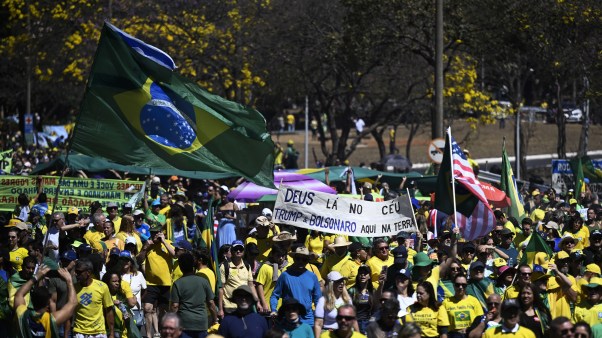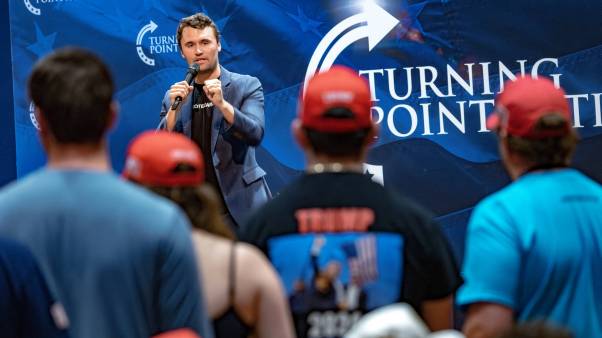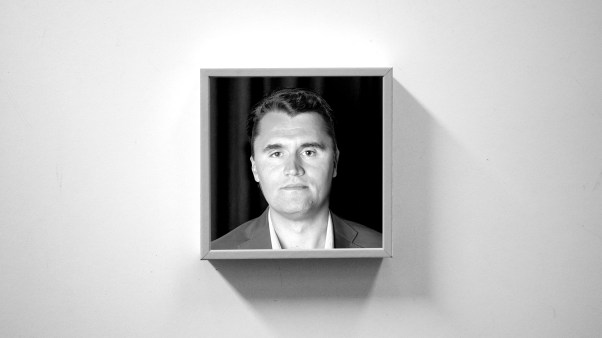Heads of churches recently selected Andrew Wutawunashe, the outgoing president of the Evangelical Fellowship of Zimbabwe (EFZ), to call for “immediate efforts to defuse the racial, political, and social polarization that has characterized President Robert Mugabe’s land redistribution process.”
The program, ruled illegal by Zimbabwe’s highest court and decried by agricultural experts as a recipe for disaster, calls for land to be taken from minority whites and given to members of the black majority. Whites make up just 1 percent of Zimbabwe’s population but hold 70 percent of the arable land. The government also has ignored calls to refrain from illegal and brutal tactics against political opponents, journalists, and judges.
Addressing a crowded press conference on January 25, Wutawunashe read a conciliatory statement signed jointly by EFZ, the Zimbabwe Council of Churches, and the Catholic Commission for Justice and Peace. While supporting fair and lawful land distribution, the statement also called for an end to violent and illegal land acquisition by landless black Zimbabweans.
Wutawunashe appealed to the government, the international community, white commercial farmers, and landless Zimbabweans “to listen to the voice of the church because it is a voice of wisdom.”
Wutawunashe, meanwhile, has stepped down as EFZ president after a dispute involving money he raised in a fruitless attempt to have the National Constitutional Commission declare Zimbabwe a Christian country.
Gaining a Hearing
The EFZ’s voice is receiving an increasingly respectful hearing from a wide cross-section of Zimbabwean society.Relations between the government and mainline Protestant and Catholic churches and groups are, at best, cool. The government accuses the religious groups of having spawned the opposition party. Last year’s election campaign was characterized by widespread political violence in which 34 people, including opposition-party supporters and four white commercial farmers, were killed.
Before leaving EFZ, Wutawunashe helped establish a social-concerns desk.
Copyright © 2001 Christianity Today. Click for reprint information.
Related Elsewhere
See today’s related article, “Catholic Clergy Concerned About Workers on Zimbabwe’s White Farms | ‘This is no longer a free country,’ says Conference of Religious Superiors.”The Daily News of Harare, Zimbabwe, has articles on Wutawunashe’s resignation, including “Andrew Wutawunashe resigns” (Nov. 14, 2000) and “Rev. Wutawunashe accused of siphoning $1.5m from church” (Oct. 5, 2000). (Note: The archives of the paper seem to be missing right now, so these are links to Google’s cache of the pages.)
Wutawunashe, also the founding pastor of the Family of God Churches in Zimbabwe, commented on the rise of Pentecostal churches in an article in The Financial Gazette of Harare.
Our earlier coverage of Christianity in Zimbabwe includes:
Clergyman Forced to Leave Zimbabwe After Criticizing Mugabe Government | Authorities revoke work permit of Presbyterian missionary who accused the government being involved in killings. (Mar. 19, 2001)
Zimbabwe Church Officials Tell Mugabe to Respect Judiciary and Rule of Law | Catholics, Baptists, and others criticize presidential pressure on Supreme Court. (Mar. 19, 2001)
Churches Call for Inquiry Into Zimbabwe’s Pre-Election Violence | “In the meantime, accept the election results” says Zimbabwe Council of Churches (July 14, 2000)
Zimbabwe President’s Party Refuses to Join Church-Sponsored Talks to End Violence | At least 10 dead in country’s escalating political violence (May 2, 2000)
Evangelicals Abstain from Zimbabwe’s Interfaith Body | Christian group opposes blending of Christianity and traditional African religion. (Apr. 18, 2000)
Church Council Urges Swift Resolution of Zimbabwe’s Row over White Farms | Land redistribution must be done “in a systematic, just and transparent manner” (Mar. 23, 2000)
Zimbabwe’s Black Anglican Priests Claim Exclusion at White Ceremonies | Four priests resign, alleging widespread racism (Nov. 24, 1999)
Gun-Toting Missionaries Given Light Sentences (Nov. 15, 1999)
Missionaries or Mercenaries? (May 24, 1999)










